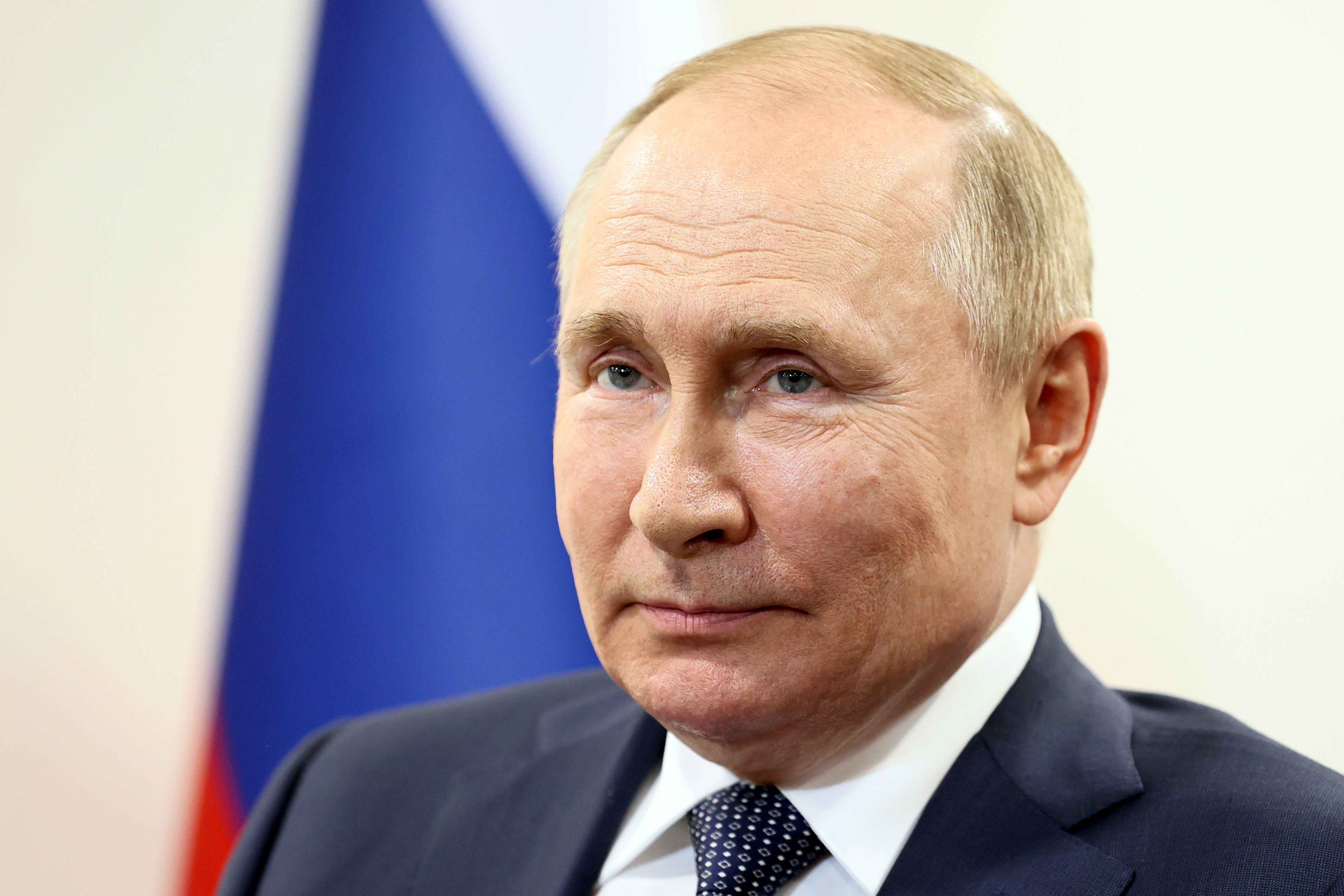Liz Truss warned North Sea oil drilling ‘frenzy’ is ‘gift to fossil fuel giants and won’t solve energy crisis’
Tory leadership hopefully reportedly plans on issuing as many as 130 licences to oil and gas firms but opponents claim it will only fuel climate breakdown
Approving new oil and gas drilling licences in the North Sea will not ease Britain’s energy crisisand will instead fuel climate breakdown, campaigners warn.
It comes amid reports Tory leadership front runner Liz Truss could issue as many as 130 licences as part of a long-term plan to ensure Britain’s energy security.
But campaigners and energy experts say this shows Ms Truss has “no real answers” to the energy price crisis that will see average annual household bills rise to more than £3,500 from October.
“Unleashing a North Sea drilling frenzy isn’t a plan to help bill payers but a gift to the fossil fuel giants already making billions from this crisis,” Doug Parr, Greenpeace UK’s chief scientist, said in a statement.
“New oil and gas could take a quarter of a century to pump out, will be eventually sold at global prices, and have no real impact on energy bills yet still fuel the climate crisis.”
Ms Truss’s reported plan comes after the UK recorded 40C for the first time on record this summer, and while Pakistan is suffering from what the head of the United Nations has described as a “climate catastrophe” as flash floods inundate around a third of the nation, leaving more than 1,000 people dead.
The Energy and Climate Intelligence Unit, (ECIU), which promotes informed debate on the climate crisis and energy policy, agreed that drilling in the North Sea wouldn’t help bill-payers in the short or long term as it would take years to get fields online and would “barely make a dent” in the prices we pay because we’re tied to international markets.

“And of course, the oil and gas companies can sell to the highest bidder, which may not be the UK,” said Jess Ralston, a senior analyst at the ECIU. “The Government currently has no plan beyond bill bailouts, which economists have pointed out we can’t sustain every year.”
Last week the ECIU said the cost of gas was responsible for at least 95 per cent of the energy bill hike or the equivalent of some £2,300 per home. Wholesale gas prices have been increasing due to a spike in demand as economies emerged from the Covid pandemic.
Russia’s invasion of Ukraine, which saw countries scramble to reduce their reliance on Russian gas and Moscow reducing or cutting off European countries from its gas supply, has also caused prices to soar.
The group Uplift, which campaigns for a fossil fuel-free UK, has warned that most of what is left in the North Sea is oil, and that of over 200 licences issued to companies since 2014 , “barely a handful” currently produce any oil and gas. That’s because a new licence doesn’t necessarily mean there are commercially viable resources in the area.
“What is shocking about this announcement is that it suggests that she [Liz Truss] is prepared to give people false hope,” said Tessa Khan, director of Uplift. “New North Sea oil and gas will do nothing to solve the crisis we face.”

The group also said the report didn’t reveal anything new: “The UK already has a policy of ‘maximising’ the amount of oil and gas we get from the North Sea.”
The UK’s decision to continue to incentivise investment in North Sea extraction follows analysis from the International Energy Agency that no new oil, gas or coal development should now take place if the world wants to meet net zero by 2050 and avoid the most catastrophic consequences of climate breakdown.
United Nations Chief Antonio Guterres has said investing in new fossil fuel infrastructure was “moral and economic madness”.
Instead, climate campaigners and energy experts agree that the best way to protect households from volatile gas prices is to reduce energy demand in the first place.
“A free, nationwide insulation programme, focusing on those most in need, could cut annual energy bills by a thousand pounds or more for millions of people currently living in heat-leaking homes,” said Danny Gross, an energy campaigner at charity Friends of the Earth.
“New wind and solar projects are quick to build, popular with the public and can generate electricity many times cheaper than gas,” he added.
RenewableUK’s chief executive Dan McGrail, a trade association for the renewable energy sector, said it was important to be clear that the cause of the unaffordable increase in household energy bills is the cost of gas.
“Wind is the cheapest source of new power for the UK,” he said. “We need to get on with building bigger British clean energy projects faster to help ease the pain for consumers".

Responding to the article in The Times on Tuesday, Caroline Lucas, the Green MP for Brighton Pavillion, shared news that it is now unavoidable that Greenland’s ice melt will cause major sea-level rise due to global heating.
“I assume Liz Truss reads this stuff – but for the life of me can’t imagine how she could possibly conclude that a sensible response to the energy crisis is to extract yet more oil and gas, which is hugely costly and will simply accelerate this massive crisis,” she said.
A spokesperson for Ms Truss’s campaign said: “Liz is committed to reaching Net Zero by 2050 in a Conservative way which helps households and businesses.
“As prime minister, she would drive forward efforts to secure the UK’s long-term energy security to help keep families’ bills low and protect them from future external shocks. She would also reduce the UK’s dependency on foreign energy supplies and leverage investment to embrace energy sources like gas and nuclear, as well as renewables like wind and tidal.”
Offshore Energies UK, a trade body for offshore energy industry, said the European energy sector was “cracking at the seams” and that without UK oil and gas resources the crack would be a “gaping hole”.
“New oil and gas licences and investment here means the UK and Europe is less likely to have to scramble for international supplies or return to using other fossil fuels, with all the implications that would have for cost, emissions, and national security,” said OEUK Sustainability Director Mike Tholen.
The Independent has contacted the government for comment.
Join our commenting forum
Join thought-provoking conversations, follow other Independent readers and see their replies
Comments


Bookmark popover
Removed from bookmarks